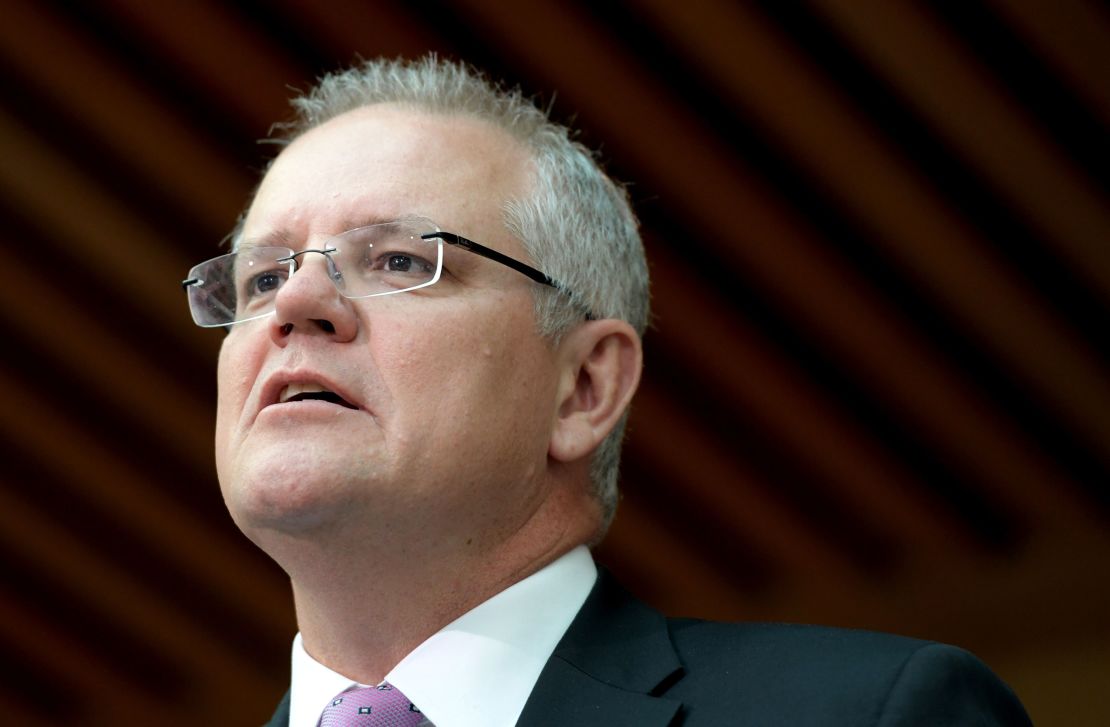Australia has thwarted a push by Pacific Island nations for more action on the climate crisis in an emotional forum at which one leader broke down in tears.
Australia, New Zealand and 16 Pacific Island members held talks at the Pacific Island Forum in the tiny island nation of Tuvalu on Thursday, eventually reaching an agreement after a 12-hour meeting.
But the final declaration was weaker than an earlier agreement by smaller Pacific countries, which called for a rapid phasing out of coal and higher emission reduction targets, Australian national broadcaster ABC reported.
The islands of the South Pacific – many of which are low-lying and aid-dependant – are on the front line of climate crisis. Last year, the United Nations described climate change as “the single greatest threat to the livelihoods, security and wellbeing of the peoples of the Pacific.”
Australia is also being affected, with global warming killing coral on the Great Barrier Reef and contributing to fires, floods and droughts.
Yet, while a survey revealed that 64% of the Australian population believes climate change should be a top priority, the government has been slow to reduce its reliance on fossil fuels. Coal is Australia’s second-largest export, according to Minerals Council of Australia, which represents the country’s exploration, mining and minerals processing industry.

Australian Prime Minister Scott Morrison has long supported the coal industry. He famously brought a chunk of coal into Parliament in 2017, taunting the opposition party about its push for more renewable energy by saying: “This is coal, don’t be afraid, don’t be scared, it won’t hurt you.”
Pacific Island countries, home to fewer than 10 million people, had this week hoped that Australia and New Zealand – the richest and biggest emissions contributors of the 18 Pacific Island Forum members – would step up their efforts to address the climate crisis by endorsing the so-called Tuvalu Declaration at the forum.
However, Australia had reservations about the sections on emissions reductions, coal use and funding for the UN’s Green Climate Fund, the ABC reported. New Zealand also expressed concern about the Green Climate Fund, it added.
As he left the meeting, Tuvalu Prime Minister Enele Sopoaga said: “We tried our best.” Later, he recounted an exchange with Morrison during the talks, in which he told the Australian leader: “You are concerned about saving your economies … I’m concerned about saving my people.”
Sopoaga also described how, after a presentation earlier in the week, the Prime Minister of Tonga, Akilisi Pohiva, was brought to tears.
Fijian Prime Minister Frank Bainimarama also criticized the final agreement, tweeting: “We came together in a nation that risks disappearing to the seas, but unfortunately we settled for the status quo in our communique.
“Watered-down climate language has real consequences – like water-logged homes, schools, communities, and ancestral burial grounds.”
After the talks, Morrison said it was not incumbent on any member state to endorse the agreement by the smaller nations.
“I’m accountable to the Australian people,” he told reporters. “Australia comes here, I think, with a very strong record (of reducing emissions).”
On Tuesday, Morrison announced Australia would reallocate $500 million (US$339 million) over five years from existing aid funds to help the Pacific deal with the challenges of climate change. On Thursday, New Zealand also announced it would dedicate $150 million (US$97 million) to help with climate change resilience.
“We also did this because it is what’s necessary to prevent our Pacific neighbors like Tuvalu, Kiribati and the Marshall Islands being put at significant risk of devastating impacts linked to climate change,” New Zealand Prime Minister Jacinda Ardern said. “The catastrophic cost of doing nothing to tackle climate change is no longer an option.”
Jonathan Pryke, director of the Pacific Islands Program at the Lowy Institute, an independent Australia-based think tank, said climate change is “more than just a thought exercise for a country that most modeling shows will be uninhabitable within our lifetime.”
Pryke added that Morrison had faced “uncharacteristic hostility” from Pacific nations during the “bruising” meeting, which wouldn’t help Australia’s relations across the region.
Australia is the biggest donor of aid in the Pacific. But in recent years, China has emerged as a major player, investing billions of dollars in Pacific infrastructure projects – prompting concern about Beijing’s rising influence.


